Edgy Ecommerce: Breaking Away from the Status Quo

By Allison Howen, Associate Editor
The status quo is perfectly acceptable for many online retailers. Those that are willing to take risks, however, are the ones positioned to excel.
Fortunately, there are many retailers doing business on the Web who are pushing the existing boundaries, and even more innovative technology vendors ready to support them in achieving their goals. For some inspiration on how your Internet-based retail enterprise can break away from the pack and improve key performance indicators (KPIs) like conversions and engagement in the process, check out the five edgy ecommerce technologies featured below:
Advance On-Site Discovery with Fluid
XPS Fluid's expert personal shopper (XPS) software, powered by IBM's Watson, enables brands to replace traditional search functionality with a guided conversation. The product recommendation platform creates an experience where shoppers engage in dialogue similar to talking to an in-store expert.
The North Face is the first retailer to leverage XPS, with the company using the technology to provide outerwear recommendations. Shoppers simply need to answer a series of questions, such as who the item is for, and where and when it will be worn. This conversation enables XPS to refine its recommendations and deliver a variety of products based on the information provided by the customer.
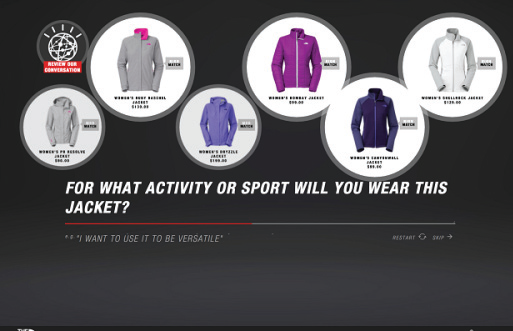
Offer Cross-Channel Customer Service with Shopkey
Digital customer service is undoubtedly evolving, with recent data from Aspect revealing 38 percent of consumers would rather use messaging apps like Facebook Messenger or WhatsApp than make a phone call for their customer service needs. To help its retailers expand their digital customer service offerings, Shopify recently launched its Shopkey app. Shopkey is an ecommerce keyboard app for iOS that gives retailers instant access to their product catalog across mobile messaging (SMS) and social apps.
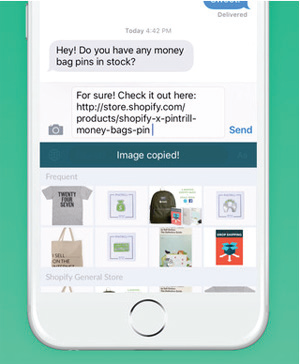
For example, retailers can leverage the keyboard to quickly send links for products and paste product images into conversations. What's more, since Shopkey works in other apps, the keyboard makes it easier for merchants to post links and photos to social sites via mobile.
Strengthen Shopper Confidence with Reserve In-Store
Most retailers are familiar with "buy online, pick up in-store" functionality, but some apparel retailers are putting a twist on this concept by allowing customers to reserve items online to try on in-stores later.
The Reserve In-Store feature from Sku IQ, for instance, enables brick-and-mortar retailers to offer reservation functionality on their sites. With this option, shoppers can research products online and take action even if they are not ready to convert. This functionality is beneficial because it removes uncertainty from the purchasing process, as shoppers can visit a brick-and-mortar location to pick up their reservation, try on the items and then make a confident purchase (likely decreasing return rates). Plus, store associates can answer questions to close the sale as well as upsell.
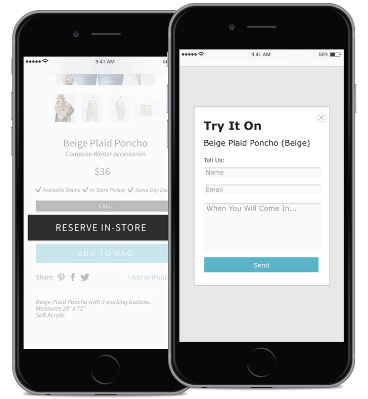
Monetize Blogs with Curalate Reveal
Seventy-seven percent of B2C marketers leverage blogs as a content marketing tactic according to the Content Marketing Institute. The problem with blogs, however, is that while they are great for customers in the discovery stage, there are roadblocks standing in the way of conversions because content is not always connected to product or checkout pages. To solve this problem, some retailers are experimenting with solutions to help them monetize editorial content.
Curalate Reveal, for instance, enables retailers to create shoppable images that can be leveraged in blog posts to help consumers discover all available items in the picture. Home furnishings retailer Schoolhouse Electric & Supply Co. tested the solution and reported a 110 percent increase in click-through rates when compared to its traditional blog posts.
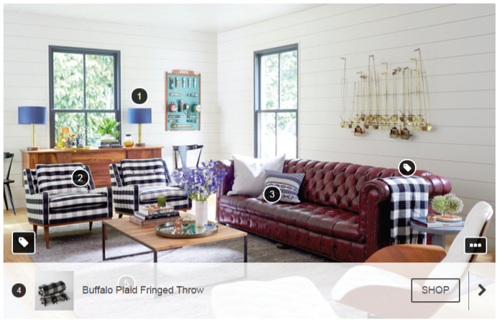
Provide Payment Flexibility with FuturePay
Savvy retailers offer a variety of payment options at checkout to increase the chances of conversions, but some retailers are gambling on options outside of popular choices like PayPal and Visa Checkout. FuturePay is an example of a payment option that can be leveraged to let customers "buy now and pay later" - all without a credit card. Once the order is processed, FuturePay pays the retailer the full amount and customers settle their balance with FuturePay via monthly payments. Retailers interested in the technology can leverage FuturePay's API or integrations with many top ecommerce platforms, including Shopify, Magento and 3dcart.
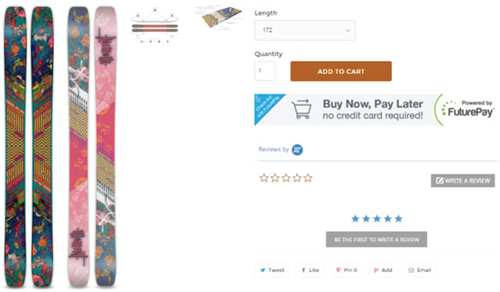
Avoid the Rut
There is a fine line between sticking with the status quo and being stuck in a rut. To avoid the latter, it is important for ecommerce retailers to continually push boundaries and test new technologies.









